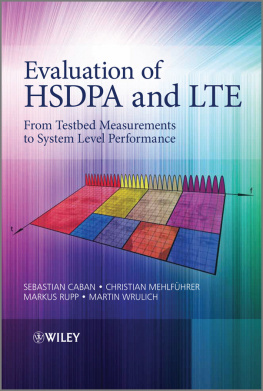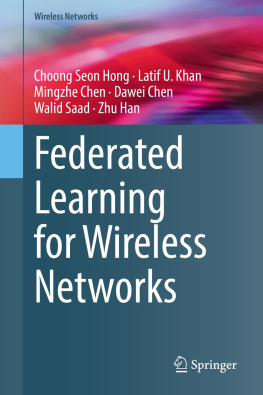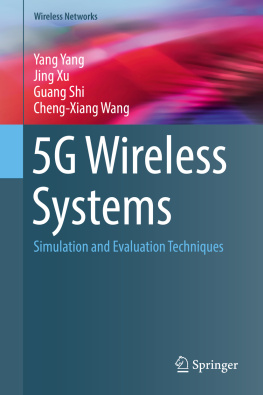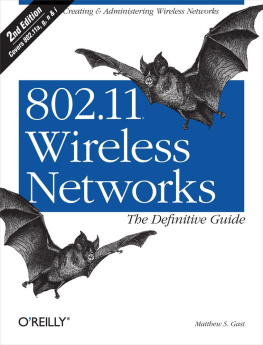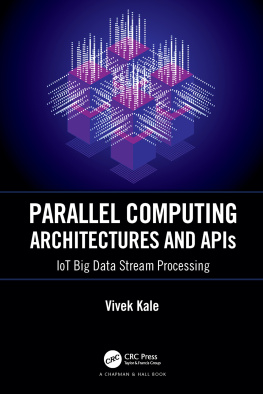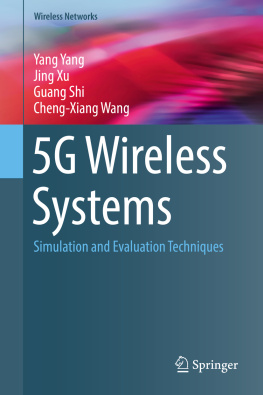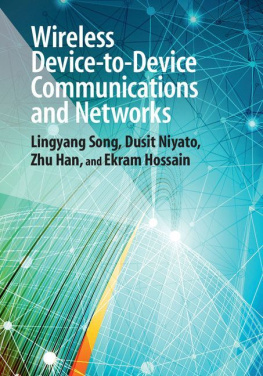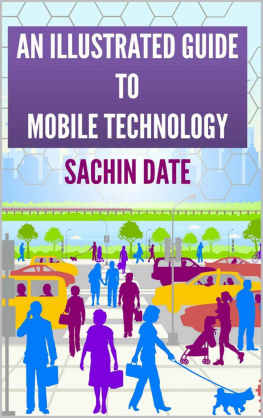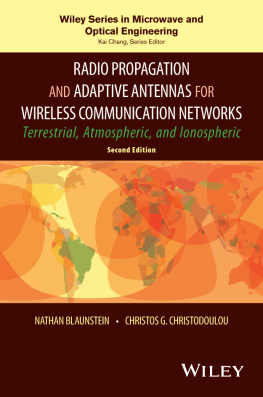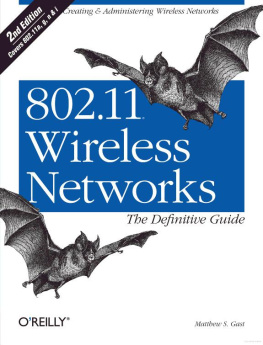This edition first published 2012
2012 John Wiley & Sons Ltd
Registered office
John Wiley & Sons Ltd, The Atrium, Southern Gate, Chichester, West Sussex, PO19 8SQ, United Kingdom
For details of our global editorial offices, for customer services and for information about how to apply for permission to reuse the copyright material in this book please see our website at www.wiley.com.
The right of the author to be identified as the author of this work has been asserted in accordance with the Copyright, Designs and Patents Act 1988.
All rights reserved. No part of this publication may be reproduced, stored in a retrieval system, or transmitted, in any form or by any means, electronic, mechanical, photocopying, recording or otherwise, except as permitted by the UK Copyright, Designs and Patents Act 1988, without the prior permission of the publisher.
Wiley also publishes its books in a variety of electronic formats. Some content that appears in print may not be available in electronic books.
Designations used by companies to distinguish their products are often claimed as trademarks. All brand names and product names used in this book are trade names, service marks, trademarks or registered trademarks of their respective owners. The publisher is not associated with any product or vendor mentioned in this book. This publication is designed to provide accurate and authoritative information in regard to the subject matter covered. It is sold on the understanding that the publisher is not engaged in rendering professional services. If professional advice or other expert assistance is required, the services of a competent professional should be sought.
MATLAB is a trademark of The MathWorks, Inc. and is used with permission. The MathWorks does not warrant the accuracy of the text or exercises in this book. This book's use or discussion of MATLAB software or related products does not constitute endorsement or sponsorship by The MathWorks of a particular pedagogical approach or particular use of the MATLAB software.
Library of Congress Cataloging-in-Publication Data
Evaluation of HSDPA and LTE : from testbed measurements to system level performance / Sebastian Caban ... [et al.].
p. cm.
Includes bibliographical references and index.
ISBN 978-0-470-71192-7 (cloth)
1. Long-Term Evolution (Telecommunications) 2. Packet transmission (Data transmission) I. Caban, Sebastian.
TK5103.48325.E93 2012
621.382 dc23
2011023059
A catalogue record for this book is available from the British Library.
ISBN: 9780470711927 (H/B)
ISBN: 9781119954699 (ePDF)
ISBN: 9781119954705 (oBook)
ISBN: 9781119960881 (ePub)
ISBN: 9781119960898 (mobi)
About the Authors
Sebastian Caban was born in Vienna, Austria, on March 13, 1980. After attending a technical high school and a mandatory service in the Austrian Armed Forces, he started studying electrical and communication Engineering at the Vienna University of Technology. He received his masters degree in 2005 and his Ph.D. degree in 2009 as sub-auspiciis presidentis rei publicae. In between, he studied a year at the University of Illinois at Urbana Champaign, USA. In 2005, Sebastian Caban also started to study economics at the Vienna University to relax from engineering. He completed a 5-year masters degree in business administration in 2010. Nonetheless, Sebastian Caban's work and research interest at the Vienna University of Technology focuses on developing measurement methodologies and building testbeds to quantify the actual performance of wireless cellular communication systems (UMTS, LTE) in realistic scenarios. Next to 12 national scholarships and prizes, Sebastian Caban was awarded the Frderpreis 2006 of the German Vodafone Stiftung fr Forschung for his research. E-mail: .
Christian Mehlfhrer was born in Vienna, Austria, in 1979. In 2004 he received his Dipl.-Ing. degree in electrical engineering from the Vienna University of Technology. Besides his diploma studies he worked part time at Siemens AG, where he performed integration tests of GSM carrier units. After finishing his diploma thesis on implementation and real-time testing of spacetime block codes at the Institute of Communications and Radio-Frequency Engineering, Vienna University of Technology, for which he received the Vodafone Frderpreis 2006 (together with Sebastian Caban), he started his doctoral thesis at the same institute. In 2009, he finished his Ph.D. about measurement-based performance evaluation of WiMAX and HSDPA with summa cum laude. His research interests include experimental investigation of MIMO systems, UMTS HSDPA, WLAN (802.11), WiMAX (802.16), and the upcoming 3GPP LTE system. Currently, he is working as a consultant for Accenture. E-mail: .
Markus Rupp was born in 1963 in Vlklingen, Germany. He received his Dipl.-Ing. degree in 1988 at the University of Saarbrcken, Germany and his Dr.-Ing. degree in 1993 at the Technische Universitt Darmstadt, Germany, where he worked with Eberhardt Hnsler on designing new algorithms for acoustical and electrical echo compensation. From November 1993 until July 1995 he had a postdoctoral position at the University of Santa Barbara, California, with Sanjit Mitra, where he worked with Ali H. Sayed on a robustness description of adaptive filters with impact on neural networks and active noise control. From October 1995 until August 2001 he was a member of Technical Staff in the Wireless Technology Research Department of Bell-Labs at Crawford Hill, NJ, where he worked on various topics related to adaptive equalization and rapid implementation for IS-136, 802.11, and UMTS. Since October 2001 he has been a full professor for Digital Signal Processing in Mobile Communications at the Vienna University of Technology, where he served as Dean from 2005 to 2007. He was associate editor of IEEE Transactions on Signal Processing from 2002 to 2005, is currently associate editor of JASP EURASIP Journal of Advances in Signal Processing , and JES EURASIP Journal on Embedded Systems . He is a Senior Member of IEEE and elected AdCom member of EURASIP since 2004 and serving as president of EURASIP from 2009 to 2010. He has authored and co-authored more than 350 scientific papers, including 15 patents on adaptive filtering and wireless communications. E-mail:
Martin Wrulich was born in 1980 in Klagenfurt, Carinthia. He received his Dipl.-Ing. degree from Vienna University of Technology in March 2006, which was awarded by the Diplomarbeitspreis der Stadt Wien. Furthermore, he received three times a scholarship from the faculty of electrical engineering and information technology for excellent academic performance. He started his doctoral studies in the area of system-level modeling and network optimization at the institute of communications and radio-frequency engineering in March 2006. In 2009, he received a Marshallplan scholarship to join the group of Prof. Paulraj at Stanford University, after which he finished his PhD sub-auspiciis presidentis rei publicae. He also acted as a TPC member for the IEEE broadband wireless access workshop in 2009. Currently he is working as a consultant for McKinsey&Company, Inc. E-mail:
About the Contributors
Josep Colom Ikuno was born 1984 in Barcelona, Spain. He received his bachelor in Telecommunications Engineering from the Universitat Pompeu Fabra in Barcelona in 2005 and his Master's degree also in Telecom Engineering from the Universitat Politcnica de Catalunya in 2008, both with honors. Since beginning of 2008 he is with the Vienna University of Technology in the Mobile Communications Group, where he works towards his Ph.D thesis in the field of LTE link and system level simulation, modeling and optimization. His past and present research interests include video coding, OFDM systems, and accurate, low-complexity modeling of the physical layer for system level simulation of wireless networks, with emphasis on the integration of real operator data in the simulations and models. E-mail:

